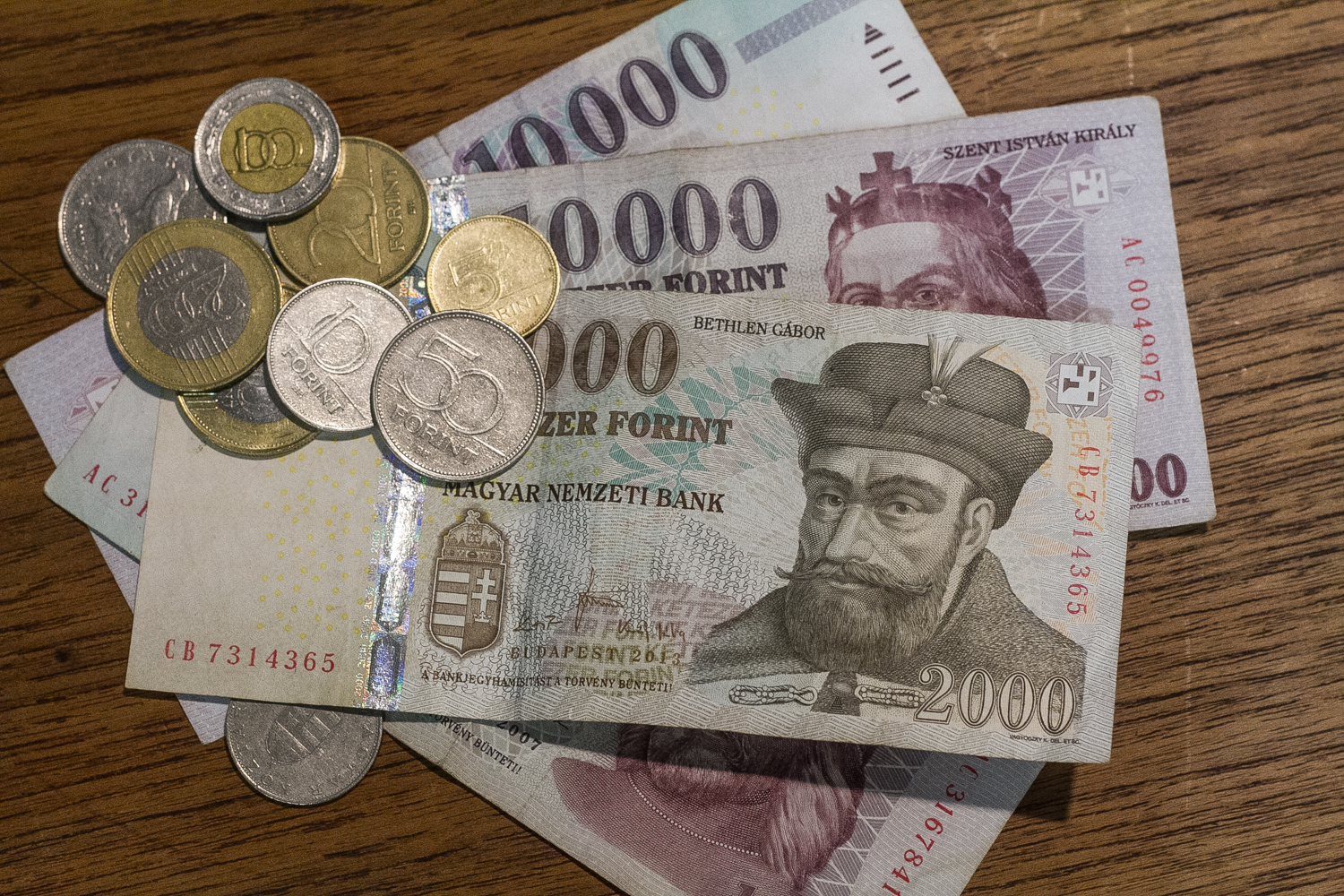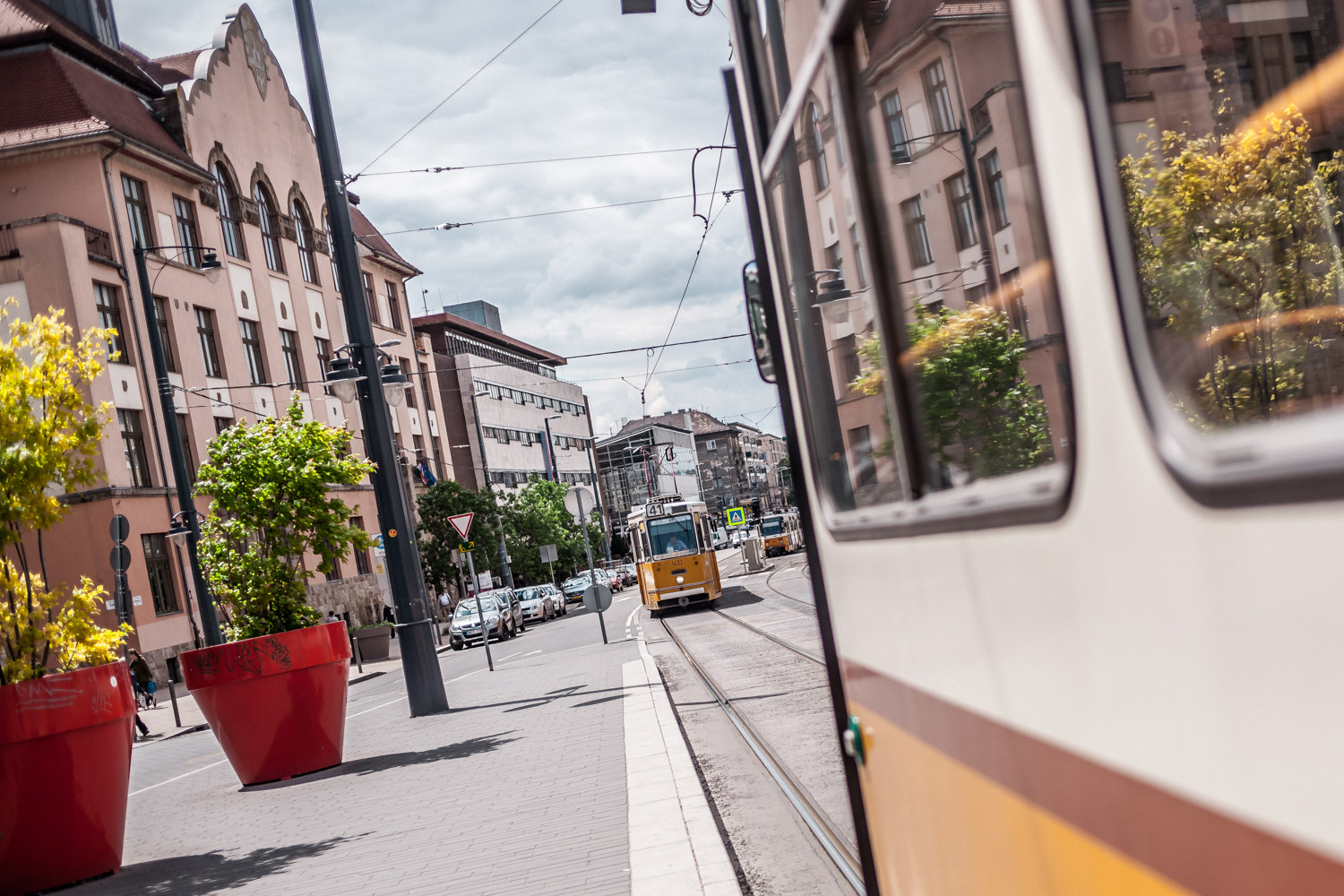1/22
Last names come first
Hungary is one of those countries where the family name comes first and the given name last. So take a Hungarian name like Nagy Bence for example – Nagy is the family name. Traditionally brides also officially took their husband's name with the suffix 'né.' So the wife of Nagy Bence, for example, would officially be known as Nagy Bencené. For many, however, this tradition is coming to an end with most young people retaining their own name after marriage or just taking on the husband's surname. But remember the last name still comes first - no matter what!
2/22
There are lists of approved names
In Hungary there are laws about what names can be given to children. There's a big long list of names to choose from. These lists include traditional Hungarian names, saint's names as well as some approved modern names. You can see the full list of boy's names here and girl's names here. Hungarians also celebrate name days, these are like birthdays but for names. Each name is given one or more dates each year on which the 'névnap' is celebrated.
3/22
So many zeroes on the money
Hungarian currency can be really confusing for newcomers because of the sheer number of zeroes to contend with. The largest note is 20 000 HUF, and unless you’re a seasoned professional it can be easy to confuse a 1 000 HUF note with a 10 000 HUF note. Trust us, the realisation that this has happened... like for instance just after jumping out of a taxi... is one of the saddest experiences ever.
4/22
Special cigarette shops
Wander into a convenience store or a petrol station and expect to find cigarettes? No way! In Hungary there are special, nationally-run tobacco shops (called “dohánybolt”) that are the only vendors licensed to sell cigarettes. You can easily recognise them by looking out for the signage above.
5/22
Sooooo many kebab shops
We don’t know whether Ottoman rule in the 16th and 17th centuries is to blame, but you’d be forgiven for thinking that Hungary is still part of the Ottoman Empire judging by the number of kebab shops there are in Budapest. While it's surprising how common these kebab spots are, it's no wonder Hungarians love kebabs - they're pretty much the perfect late-night fix.
6/22
Tricky toilet lights
Bear with us while we explain. Ever wandered into a toilet in Budapest, it’s pitch black so you start to feel around on the wall for a switch but suddenly voilà the lights automatically turn on? Or perhaps you head confidently into the darkened toilet hoping the sensor will detect you only to realise there.is.no.sensor and you now have to go back and find the switch while you're busting to pee. We’ve never experienced this anywhere else in the world, but it seems a light-sensor salesman went nuts in Budapest and now, dealing with a dark toilet while you're half unbuttoned, evokes sheer terror.
7/22
Erős pista and tejföl on everything
Hungarians aren’t happy with the usual salt and pepper condiments, for Hungarians no meal is complete without adding the hot chilli sauce Erős Pista (literally 'Strong Steve') or ground hot or sweet paprika. And there's more - for many Hungarians a dish simply needs to be smothered in tejföl. This sour cream is added to everything from soups and stews, to pancakes and even a fresh cucumber salad.
8/22
Bad moods are caused by “the front”
If a Hungarian’s in a bad mood or has a headache, you'll often hear them blame it on 'the front.' You might ask: what is this front you speak of? The weather front of course! Naturally, the way the wind blows changes quite often so this might explain that old stereotype that Hungarians are often in a bad mood - there's always one of those damn fronts!
9/22
Complaints about the weather
An addendum to the above point is that Hungarians are often unhappy with the weather. While this isn't that unusual (weather-apathy is a global phenomenon) Hungarians seem to be especially dramatic about it. If it’s over 28 degrees then it’s “kánikula,” if it’s cold then it’s “zimankó” and if it’s raining it’s probably the death-trap, slippery “ónos eső” kind of rain. We should also add that complaining, full stop, is one of the traits that Hungarians are known for, although we think this can be kind of endearing.
10/22
There are many seasonal venues
We understand the concept of seasonal venues, like say if you’re at a ski resort, but the city of Budapest has plenty of venues that only operate certain seasons. This is the case for venues that open a separate outdoor space in an empty parking lot or green space during the warmer months, but it's also the case for some winter venues when it starts to get too hot for their basement space. Of course, this isn’t such a big deal as there are so many options to choose from, it’s just funny. But be warned if you really loved a place in August, you might be disappointed to find it closed in January.
11/22
Health issues are discussed loudly
This should actually say: overhearing health complaints and other personal matters. Elderly Hungarians, in particular, love talking about their health concerns in public, and it doesn’t matter if they’re on the bus and everyone in a 4 metre radius can hear about their latest bladder concerns. You might also be lucky to hear a blow-by-blow account of the fist-full of tablets they take each morning, or why they don't like who their son is marrying, or how the neighbour might be cheating or isn't feeding their dog properly. Although some find it annoying, we love eavesdropping on these riveting conversations.
12/22
Tables are reserved ASAP
If you're new to Budapest, you might be surprised to notice that you're having lunch with a note on the table that says 'reserved - 7pm.' This is because in many of Budapest's restaurants the “reserved” note goes on the table as soon as the reservation is made. Whether it's because restaurateurs are super cautious or super keen, way we don't mind eating with the little note.
13/22
ID cards are compulsory
For Hungarians, it’s compulsory to carry their ID card with them at all times. While foreigners might find this strange, the police can stop anyone and do random ID checks. People have been taken to the police station for doing nothing wrong – except not having this little plastic card on them. Incredible!
14/22
Transport tickets are 'optional'
Like most people in the world, Hungarians don’t really like paying for public transport tickets. But in Budapest many locals make a sport out of avoiding buying tickets. If a bus route doesn't tend to have an inspector - they don't buy a ticket, if it's only a short tram ride - they don't buy a ticket. If someone who looks suspiciously like an inspector gets on the tram, then you'll see many of the locals trying to act cool while moving to the other end of the tram, closer to a door, so they can make a speedy exit at the next stop.
15/22
Waiting your turn is also optional
The previous point is kinda like the Hungarian aversion to standing in orderly lines and waiting their turn: Hungarians don’t really like it. Well, who does really? The Hungarian philosophy seems to be: waiting your turn sucks! So why wait! If this queue-jumping catches you unawares, it's a sure sign you're new to Budapest.
16/22
Swearing is a national sport
Hungarians have an incredible array of insults, and they can turn just about any combination of words into an often-hilarious, highly offensive verbal spray. Even if you've just arrived in Budapest and don't speak a word of Hungarian, if you're around a Hungarian who's swearing, you'll soon get their point.
17/22
Arguments are dramatic and heated
Whether it’s about soccer, politics or whether Hungary is in eastern or central Europe, Hungarians love to argue. But of course, while it might seem things are getting quite heated, most of these fights are pretty playful and a round of pálinka usually settles even the most animated stoushes.
18/22
Pre-set apartment heating
There’s a really strange thing that happens in some Hungarian apartment buildings. The heating is controlled centrally and there’s a date at the start of winter when it goes on and a date after winter when it is turned off. While it might be surprising that you can't control your own central heating, in some of these old apartment buildings your central heating is fixed to these dates.
19/22
The Hungarian language.
The Hungarian language. Full stop. When you first arrive in Budapest Hungarian sounds like nothing else, and the pronunciation seems impossible! Even the grammar can seem like a labyrinth of rules and broken rules. Nevertheless, if you do eventually get into language-learning, you'll probably love Hungarian for all its flexibility and beauty.
20/22
Dog-friendly cafes are common
The best city in the world to be a dog is quite possibly Budapest. The number of dog-friendly cafes and bars is incredible. In Budapest you can take your dog with you to many eateries - and the waiter is even likely to bring your little friend a bowl of water! Just as a bonus we wrote about Hungary's 9 dog breeds earlier, including so many cute photos - because we're dog-friendly too.
21/22
Drinks are ordered by the dl or cl
By law, bars and restaurants need to show how much drinks are by the deciliter or centiliter. This is so people can make a price comparison, and this is also why when you order a soft drink you must tell the waiter whether you would like 1 or 2 dl of that peach juice. This normally doesn't cause too many problems - so long as you know how big that pálinka is you've just ordered!
22/22
The “napi menü” is ordered every day
And finally, one sure sign that you're new to Budapest is that you don't eat the discount-priced napi menü - or the 'daily menu' - for lunch each day. Most locals in Budapest will do their research at about 10 or 11am each morning into which two or three course napi menü they will eat for lunch. For newbies to the city, once you start eating the napi menü for lunch each day you can officially call Budapest home. Welcome!













